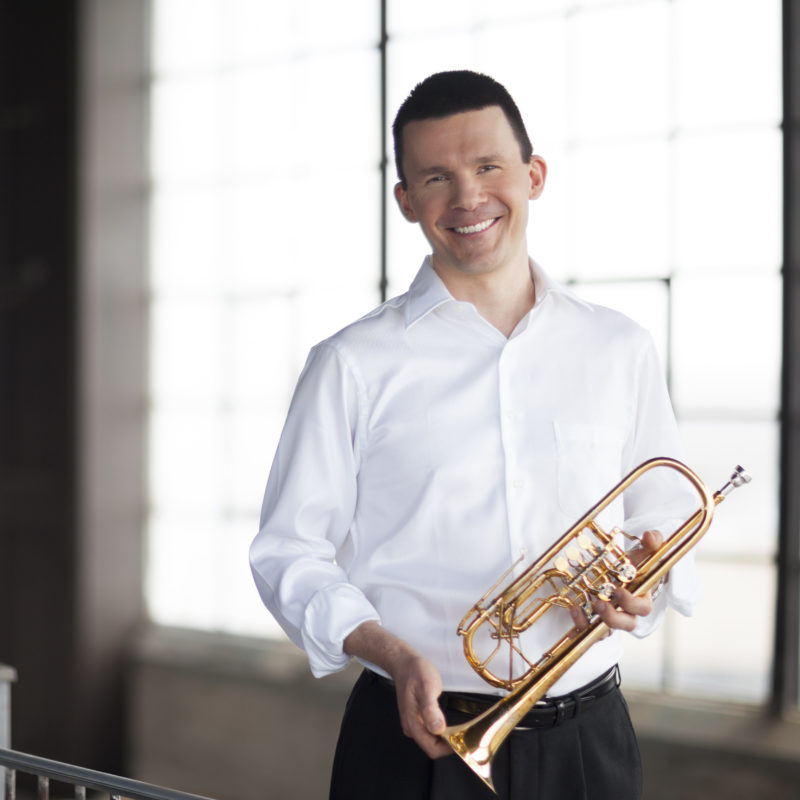
How well do you know George Chase, ROCO’s witty, funny gent who happens to play the trumpet. Ahead of ROCO’s Brass Quintet inaugural concert at MATCH on Friday, Oct. 9, which was featured in a Houston Chronicle preview by classical music writer Colin Eatock, we sat down with George to get to know him a bit better.
Q: Without a conductor, how do five artists come together in musically cohesive agreement? Do you go with the flow or do you plan?
A: Purely intimidation, lots of insults and pushing people around.
No, seriously. It’s a mix of planning and trying different things (changes of tempi, pacing, texture, balance). The space in which a group performs will make some changes necessary, especially regarding dynamics and articulation.
Q: Every musician in a chamber group has a specific role. Someone is the cheerleader, some push tempi, others are into color. What’s your role, George?
A: Providing really good coffee.
Q: How have you curated this program?
A: This 11th season for ROCO, the theme is side by side, and that is represented in this program in a number of ways. Performing music from two genres (classical and jazz) and performing music from composers who were active at the same time but were from different places; the U.K., France, USA and Canada.
And finally, performing music side by side from the 21st century, the 20th century and Maurer‘s music of the 19th century.
A: Any special effects, interesting styles or extended techniques you get to do in this program?
Q: Jason and I will play flugelhorn for part of the Lafosse quintet. In one movement, the score directs him to play flugelhorn while I play trumpet for a more varied sound texture. For Ellington’s music, you’ll hear the use of a plunger mute, half-valve effects, growls and more!
A: Tell me something about your instrument that most people don’t know?
Q: The trumpet is an instrument made of brass, but different models have different finishes/coatings. Some are coated with lacquer, others with silver, some with gold, but they are all of the same general construction underneath!
Another tidbit: Professional trumpeters are expected to be able to transpose, meaning, to read music on a page and play it in a different key. Trumpet parts in the past were written for instruments in the key of G, A flat, A, B flat, B, C, D, E flat, etc., but we often play them on modern instruments in the key of C or B flat, which then makes it necessary to transpose!
This might explain why so many trumpet players like coffee before they play.

Leave A Reply